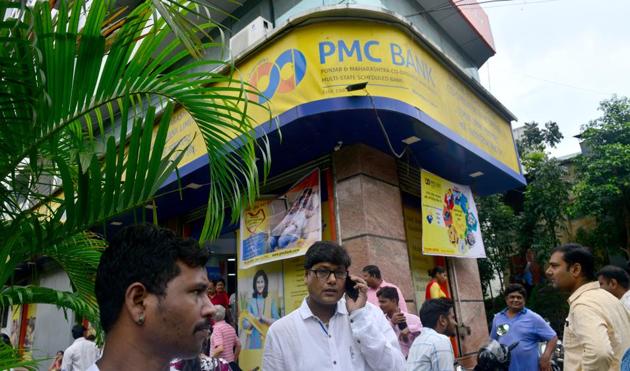To prevent cooperative bank scams, RBI can use its powers creatively | Analysis
The central bank should act on suspicion, rather than wait for facts. Cooperatives must pass the ‘smell test’
Benjamin Franklin is supposed to have said that “an ounce of prevention is worth a pound of cure”. The same can be said of the manner in which we need to deal with scams like that at the Punjab & Maharashtra Co-operative (PMC) Bank last week. It is frustrating that another financial scam has been perpetrated, despite Reserve Bank of India (RBI)’s inspections.

People familiar with the cooperative banking sector will accept that it represents a compromise between oversight and financial inclusion by lending to those who might otherwise not get loans. Recognising the risks in this sector, RBI has pointed out (Malegham report 2010 and R.Gandhi reports 2015 ) that the dual regulation of cooperative banks, by the Registrar of Cooperative Societies and RBI, inherently dilutes its effectiveness. In other commercial banks, RBI has powers to approve directors and key managers. In cooperative banks, it is usually the shareholders who select the directors, and this is often influenced by political considerations. Even a cursory look at the boards of most cooperative banks reveal an astonishing lack of professional expertise. Furthermore, the combination of elected shareholders, community-based borrowers, and loose compliance requirements for such banks leads to cooperative banks being popular conduits for funds from politically-connected people. All of these are red flags for a normal bank.
Yet, since there is an apparent social and legislative sanction for a more lax regulatory regime for these banks, what more can be done within RBI’s current powers to prevent fraud? RBI, we believe, would be well within its powers to act on the basis of suspicion rather than facts (usually available when it is too late).
The suspicions of a regulator are aroused in many ways. If, during an inspection, a regulator believes that the management doesn’t meet a high standard of transparency, delays providing responses, claims its systems are not in order, or their managers demonstrate professional incompetence, RBI could ask for higher provisions, increased capital adequacy, and prevent the bank from reaching out to the capital market. RBI can selectively send a signal that if such a bank does not professionalise the board and management, it will set higher standards for provisioning. These are some of the disincentives to playing fast and loose with depositors’ money.
RBI can, similarly, act on auditors before a scam is unearthed. The managing director of the PMC bank has said that various audits were done in a superficial manner due to time constraints. It should be possible for RBI to prohibit firms from undertaking an audit if inspections find the firm has not highlighted the weaknesses. Perhaps it could use its good offices to ensure that other regulators such as the Securities and Exchange Board of India and the Insurance Regulatory and Development Authority also place such firms on a blacklist before such events occur.
In the PMC case, loans to the property company, Housing Development Infrastructure Limited, were allegedly routed through 21,000 fake accounts. This would require collusion among employees. Taking a leaf from the Securities and Exchange Commission and the United States’ Food and Drug Administration books, RBI could make its whistle-blower mechanisms more remunerative. Whistle-blowers become more courageous if the incentive is large (say, the residual salary due to them for the rest of their lives). While the whistle-blower system must avoid becoming a channel for vexatious accusations, in light of what we have seen across the financial sector, and given that the sector is a custodian for public funds, we must strengthen this mechanism. This is an easy step to take.
In cases where an organisation does not pass the “smell test”, the approach cannot be one of correctness that stands up to legal standards of evidence. This is because when things go wrong, public money is lost, and at that point, relatively few stakeholders appreciate regulatory forbearance.
One would be the first to agree that none of these recommendations are simple solutions. However, given the politically-connected nature of these banks, it is highly unlikely that laws will be changed to strengthen banking regulations. In this situation, stronger and more creative use of tools at RBI’s disposal are required. These pre-emptive actions, even if done with bonafides, may sometimes be challenged in courts. However, a mindset to use these tools will test the extent of the powers of RBI, and also equip the central bank with better responses as to why they could not have acted otherwise. It will also force a debate on whether the public would like greater supervision or less.
RBI is widely regarded as a role model for many central banks, and has managed its role extremely well. It has enough credibility with the public and courts to realise that it is unlikely to act in a frivolous manner. In general, one hopes that after the experiences of the last three or four years, the central bank will choose to take proactive steps based on prevention.
Govind Sankaranarayanan is former COO and CFO, Tata Capital, is currently Vice Chairman at ESG Fund ECube Investment Advisors
The views expressed are personal






